What does a burning sensation in the stomach after eating indicate?
Here we understand what a burning sensation in the stomach indicates, the other symptoms, what it may mean to your health, and when to consult a doctor.
What does a burning sensation in the stomach after eating indicate?
Here we understand what a burning sensation in the stomach indicates, the other symptoms, what it may mean to your health, and when to consult a doctor.
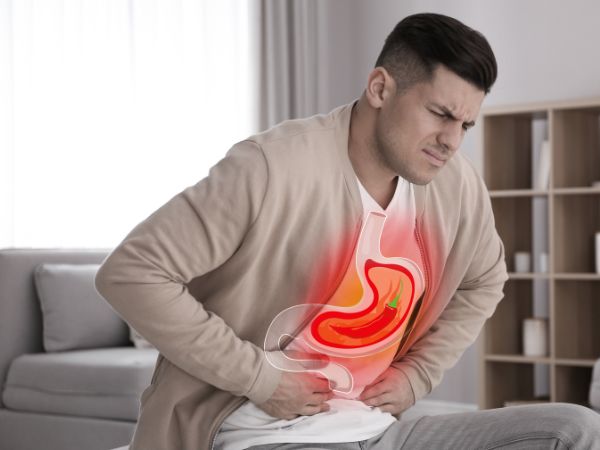
What is a burning sensation in the stomach?
A burning sensation that is felt in the stomach is normally associated with issues and trouble with digestion. Around the globe, about 80% of people suffer from indigestion but are not aware of its causes and where or when it began.
Indigestion, which is also known as dyspepsia, is likely to cause a burning sensation in the stomach. In fact, about 20% of the population faces burning sensations and indigestion.
Besides the most obvious symptom of a burning sensation in the stomach, patients are likely to feel:
- Burning pain in the upper part of the abdomen
- Feeling stuffed or full after consuming small quantities of food
- Feeling uncomfortable after eating meals
- Passing gas uncontrollably
- Sensations of heartburn
- Feeling nauseous or the urge to vomit
- Frequently burping
- Loss of appetite
- Rashes on the skin
- Joint pain
- Feeling tired and having low levels of energy
What is a burning sensation in the stomach?
A burning sensation that is felt in the stomach is normally associated with issues and trouble with digestion. Around the globe, about 80% of people suffer from indigestion but are not aware of its causes and where or when it began.
Indigestion, which is also known as dyspepsia, is likely to cause a burning sensation in the stomach. In fact, about 20% of the population faces burning sensations and indigestion.
Besides the most obvious symptom of a burning sensation in the stomach, patients are likely to feel:
- Burning pain in the upper part of the abdomen
- Feeling stuffed or full after consuming small quantities of food
- Feeling uncomfortable after eating meals
- Passing gas uncontrollably
- Sensations of heartburn
- Feeling nauseous or the urge to vomit
- Frequently burping
- Loss of appetite
- Rashes on the skin
- Joint pain
- Feeling tired and having low levels of energy
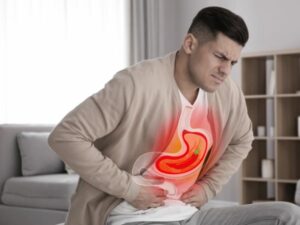
Possible reasons for a burning sensation in the stomach after eating
A burning sensation in the stomach can usually be an indication of an underlying condition, such as food intolerance.
However, a burning sensation in the stomach can be caused by food, medical conditions, medications, lifestyle changes, or habits. The majority of the time, patients are unaware of what is causing stomach burn.
Some possible reasons for experiencing a burning sensation include:
- Gastroesophageal Reflux Disease (GERD): This is when abdominal acid repeatedly flows into the oesophagus and this flow of acid reflux tends to irritate the lining of your oesophagus
- Gastritis: This is the inflammation in the lining of your abdomen. Gastritis may be contracted either from an infection, your consumption, or digestive chemicals
- Peptic ulcers: This is when there are open sores on the lining of your stomach and the upper part of your small intestine, also known as the stomach or duodenal ulcers
- Irritable bowel syndrome (IBS): This is when you experience stomach pain which is often due to changes in bowel movements. IBS is a chronic condition that has to be handled in the long run
- Gastroparesis: This is a delay in gastric emptying where nerves in the stomach are damaged or stop working; this is normally seen in people who have high sugar or diabetes
- Cholecystitis: This is a redness and inflammation in the gallbladder, also known as the build-up of gallstones. This is when bile becomes trapped and builds up in the gallbladder
- Stomach cancer: This is rather rare, but occurs when cancer cells develop in the abdomen and is most often asymptomatic. It’s curable if diagnosed in early stages
- Helicobacter pylori (H. pylori): This is a bacterial infection that the stomach contracts, which can cause stomach ulcers and increase the risk of developing stomach cancer
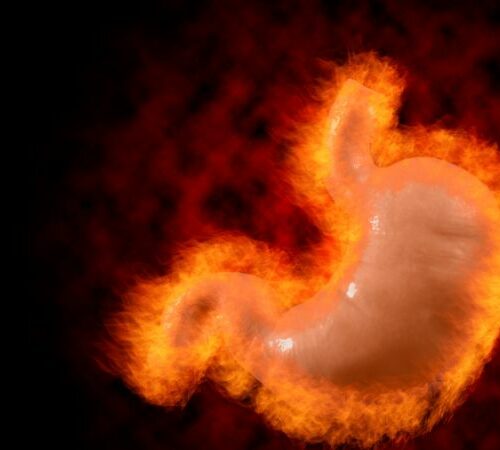
Possible reasons for a burning sensation in the stomach after eating
A burning sensation in the stomach can usually be an indication of an underlying condition, such as food intolerance.
However, a burning sensation in the stomach can be caused by food, medical conditions, medications, lifestyle changes, or habits. The majority of the time, patients are unaware of what is causing stomach burn.
Some possible reasons for experiencing a burning sensation include:
- Gastroesophageal Reflux Disease (GERD): This is when abdominal acid repeatedly flows into the oesophagus and this flow of acid reflux tends to irritate the lining of your oesophagus
- Gastritis: This is the inflammation in the lining of your abdomen. Gastritis may be contracted either from an infection, your consumption, or digestive chemicals
- Peptic ulcers: This is when there are open sores on the lining of your stomach and the upper part of your small intestine, also known as the stomach or duodenal ulcers
- Irritable bowel syndrome (IBS): This is when you experience stomach pain which is often due to changes in bowel movements. IBS is a chronic condition that has to be handled in the long run
- Gastroparesis: This is a delay in gastric emptying where nerves in the stomach are damaged or stop working; this is normally seen in people who have high sugar or diabetes
- Cholecystitis: This is a redness and inflammation in the gallbladder, also known as the build-up of gallstones. This is when bile becomes trapped and builds up in the gallbladder
- Stomach cancer: This is rather rare, but occurs when cancer cells develop in the abdomen and is most often asymptomatic. It’s curable if diagnosed in early stages
- Helicobacter pylori (H. pylori): This is a bacterial infection that the stomach contracts, which can cause stomach ulcers and increase the risk of developing stomach cancer
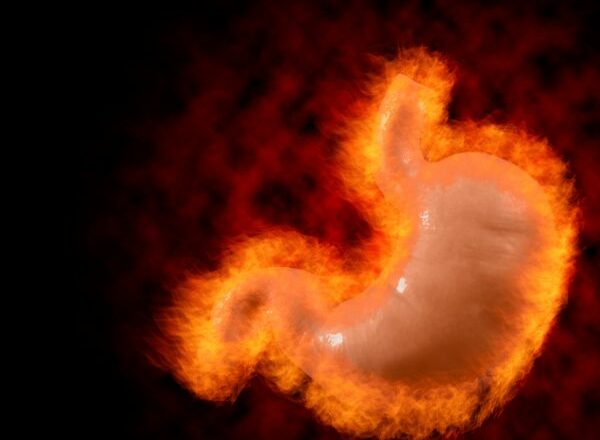
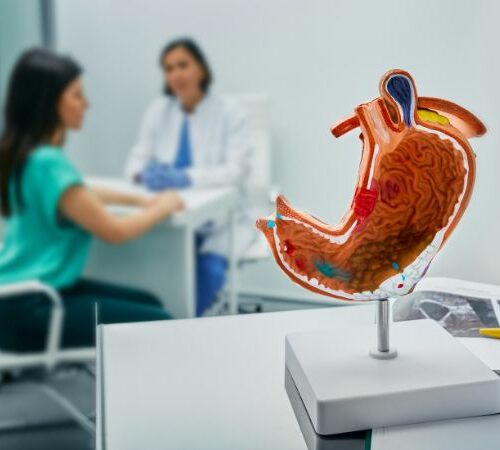
Prevention and treatment for a burning sensation in the stomach
A burning sensation in the stomach may be a common experience but it’s important to take note when you experience a burning sensation in the stomach after eating.
If your symptoms start becoming more frequent and worse, it would be best to maintain a health journal or calendar of each of your symptoms, what you consumed throughout the day, and how your body reacted to it.
To reduce the burning sensation in your stomach after eating, you can try:
- Reducing your portion size and consuming smaller meals, which will stimulate better digestion practices and ease the process of digestion
- Eating more frequently and establishing a routine for consumption
- Stopping the consumption of fizzy and carbonated drinks
- Managing your stress levels and keeping a close eye on your psychological or mental state
- Eliminating the use of alcohol, smoking, and caffeine
- Controlling stress and anxiety
- Working out regularly
- Maintaining a healthy weight
- Avoiding lying down after meals and avoiding going to sleep shortly after eating a meal, as this disrupts the process of digestion
Prevention and treatment for a burning sensation in the stomach
A burning sensation in the stomach may be a common experience but it’s important to take note when you experience a burning sensation in the stomach after eating.
If your symptoms start becoming more frequent and worse, it would be best to maintain a health journal or calendar of each of your symptoms, what you consumed throughout the day, and how your body reacted to it.
To reduce the burning sensation in your stomach after eating, you can try:
- Reducing your portion size and consuming smaller meals, which will stimulate better digestion practices and ease the process of digestion
- Eating more frequently and establishing a routine for consumption
- Stopping the consumption of fizzy and carbonated drinks
- Managing your stress levels and keeping a close eye on your psychological or mental state
- Eliminating the use of alcohol, smoking, and caffeine
- Controlling stress and anxiety
- Working out regularly
- Maintaining a healthy weight
- Avoiding lying down after meals and avoiding going to sleep shortly after eating a meal, as this disrupts the process of digestion
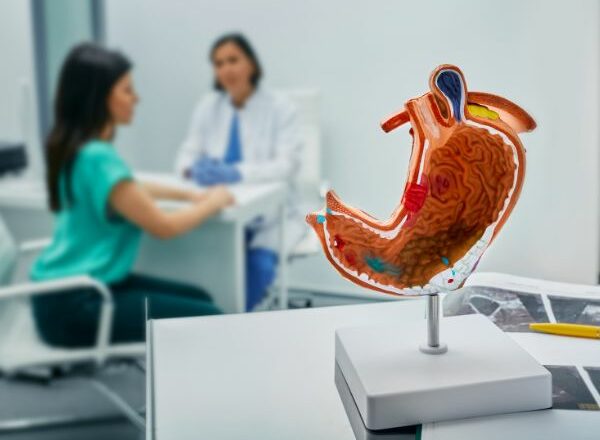
When should you consult a doctor or specialist?
To ensure less pain, get a diagnosis, and obtain answers to your questions, it would be best to consult a doctor when your symptoms and the burning sensation worsen. The remedies and prevention methods cannot be alternatives for treatment, so it is always best to get a consultation before symptoms worsen.
The Sydney Gut Clinic has a team of dedicated and highly experienced gastrointestinal specialists who are trained to provide support and treatment for all kinds of gastrointestinal conditions and diseases.
If you’re experiencing the symptoms of a burning sensation in the stomach after eating and they seem to worsen, it would be best to visit our clinic for treatment today.

When should you consult a doctor or specialist?
To ensure less pain, get a diagnosis, and obtain answers to your questions, it would be best to consult a doctor when your symptoms and the burning sensation worsen. The remedies and prevention methods cannot be alternatives for treatment, so it is always best to get a consultation before symptoms worsen.
The Sydney Gut Clinic has a team of dedicated and highly experienced gastrointestinal specialists who are trained to provide support and treatment for all kinds of gastrointestinal conditions and diseases.
If you’re experiencing the symptoms of a burning sensation in the stomach after eating and they seem to worsen, it would be best to visit our clinic for treatment today.



FAQs
What causes burning in the stomach after eating?
Most often, a burning sensation in the stomach is felt when your body is unable to digest food or faces intolerances for certain foods, stomach infections, over-consumption of fatty foods, more caffeine than usual, smoking more than usual, consuming alcohol more than usual, or if you’re undergoing psychological or mental challenges.
When should I be worried about a burning stomach?
Symptoms of a burning sensation that lasts longer than 2 weeks are generally concerning and require the seeking of medical advice. If you are frequently vomiting, have tarry black and bloody stools, feel dizzy or have the urge to faint, experience a loss of appetite or unexplained and rapid weight loss, have difficulty swallowing, feel severe and long-lasting abdominal pain or pains in your arm, chest, jaw, or neck, or observe increasing paleness and yellowing of the skin, schedule a consultation as soon as possible.
How do I stop my stomach from burning?
To prevent your stomach from burning, it would be best to start a routine for eating and consumption, improve your bowel movements, take a break from smoking and drinking, and maintain a healthy weight—this will stimulate digestion.
